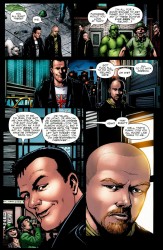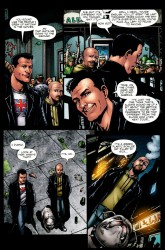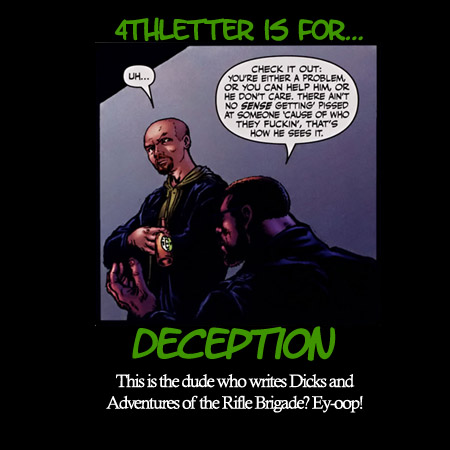
Black History Month ’09 #11: America! United We Stand, Divided We Fall
February 11th, 2009 Posted by david brothersSomething Garth Ennis does that I love is that he tends to have really obvious soapbox moments in his comics. The Boys has had a few of them so far, and The Boys 27, part five of We Gotta Go Now, had a particularly well-timed one.


One thing that’s vital to remember when discussing, mulling over, or thinking about race is this fundamental fact: we are different, but we are the same. Our parents’ parents’ parents might came from somewhere else, we have different accents, and our skin color is different, but fundamentally, we all want the same things out of life.
Yes, there is always the crushing weight of history. We might have had different starting points, our peoples have gone through various tragedies and so on and so forth, but in the end?
It’s 2009 in the United States of America.
I think that it’s fair to say that I’m a little conflicted as to where I stand on the racial identification/country loyalty scale. Am I black first or am I an American first? Which comes first? Do I feel comfortable pledging allegiance to a country that’s spent much of the past treating people who look like me as less than trash?
I guess it’s all in how you look at things. I don’t use the phrase “African-American.” When I was younger, I thought it was both corny and self-limiting. I’ve kept with black for ages, and I don’t think I’ll ever change. It’s simple, it’s descriptive, and honestly, it sounds pretty tight.
At the same time, I’m still an American. I was born here, I’ll probably die here, and I can’t really think of anywhere that’s better than here. It isn’t perfect, but near as I can tell, it’s about as perfect as things are right now.
I don’t think that your entire culture should be absorbed into the mass, leaving one featureless mess. There’s something to be said for embracing your past even as you move into the future. It’s kind of like I mentioned here, with how post-racialism is going to begin.
So, am I black or am I American? I can’t decide if the answer is “both” or “That’s a stupid question.” The two are not mutually exclusive, and celebrating one doesn’t denigrate the other. I think Billy Butcher’s approach up top is really interesting, and maybe crucial. We’re all under the umbrella of American, and that’s a beautiful thing. It’s the old melting pot or salad bowl analogy. A bunch of different things mixed in to make one wonderful thing.














